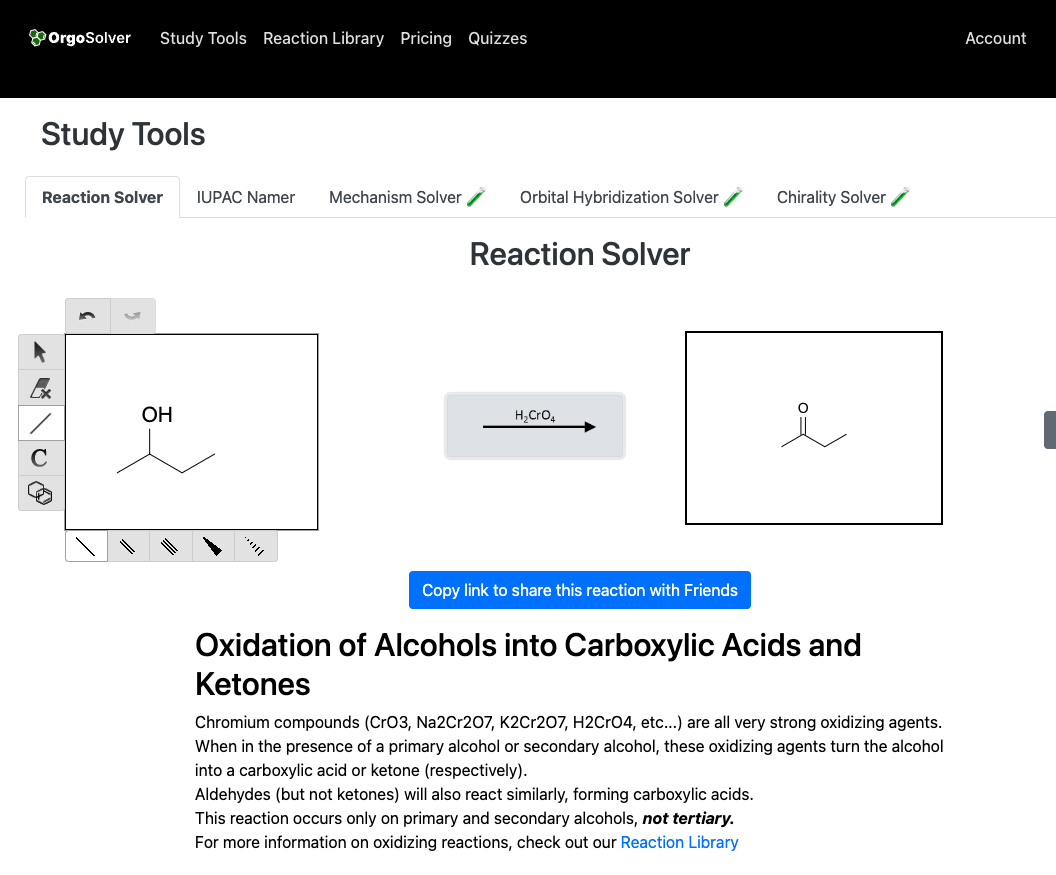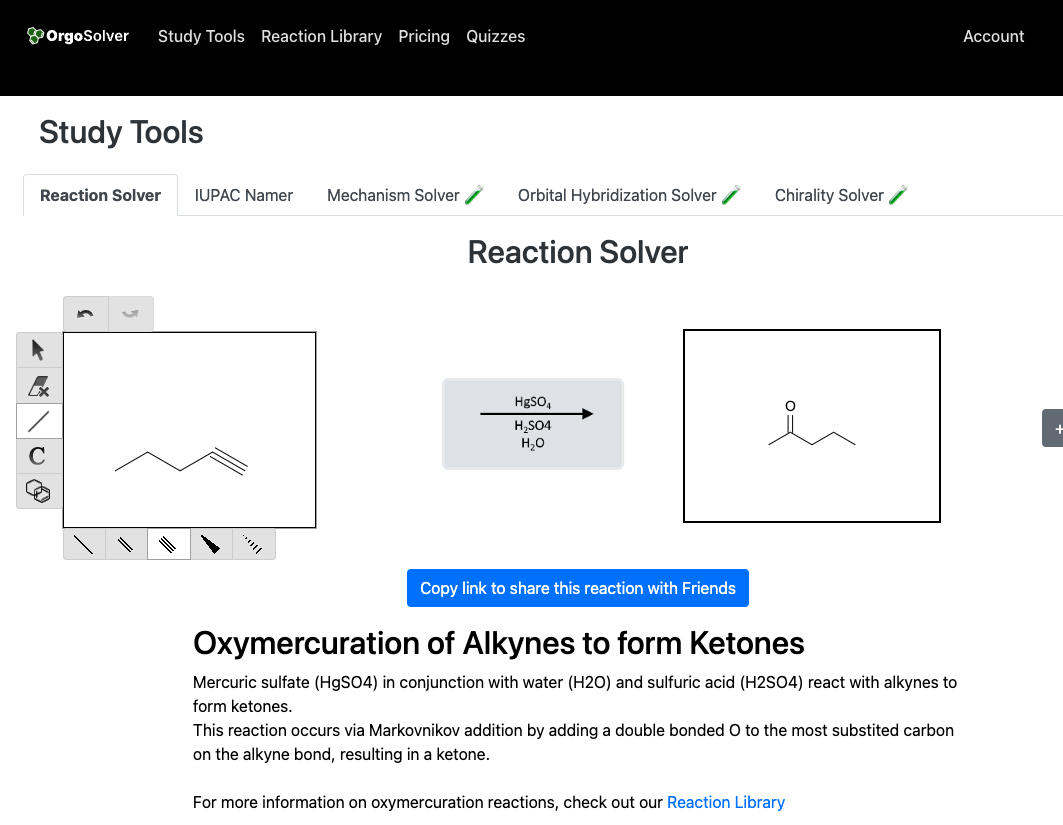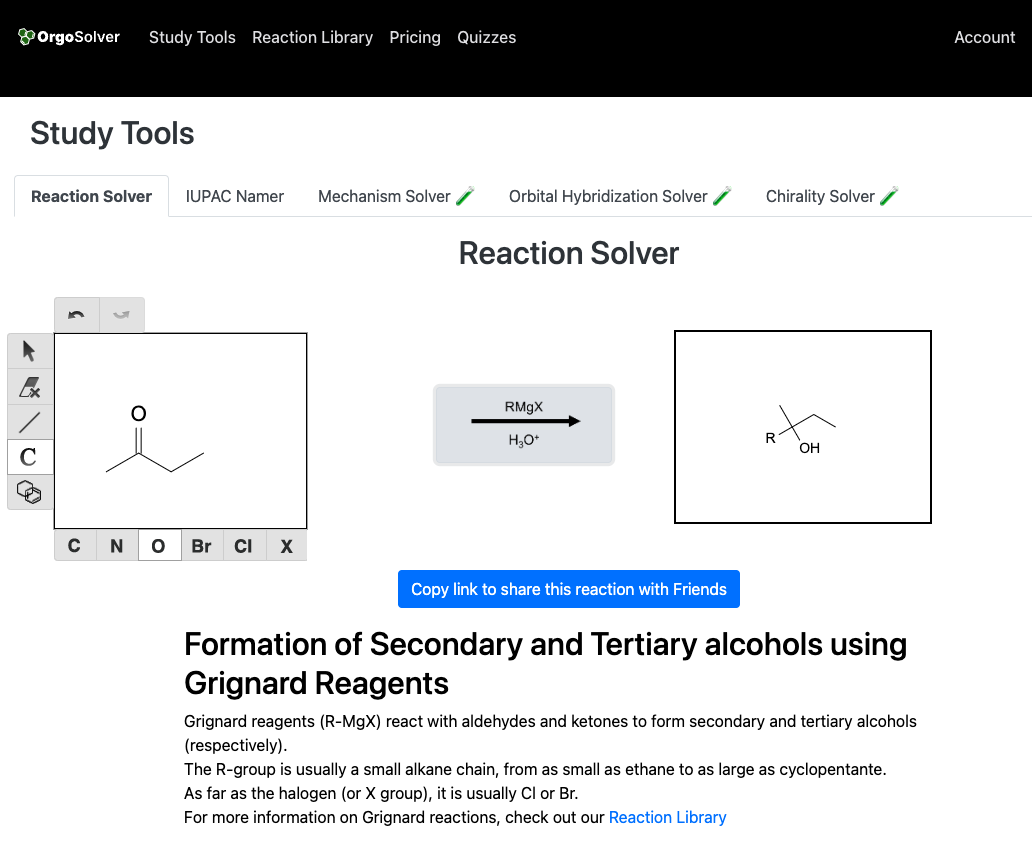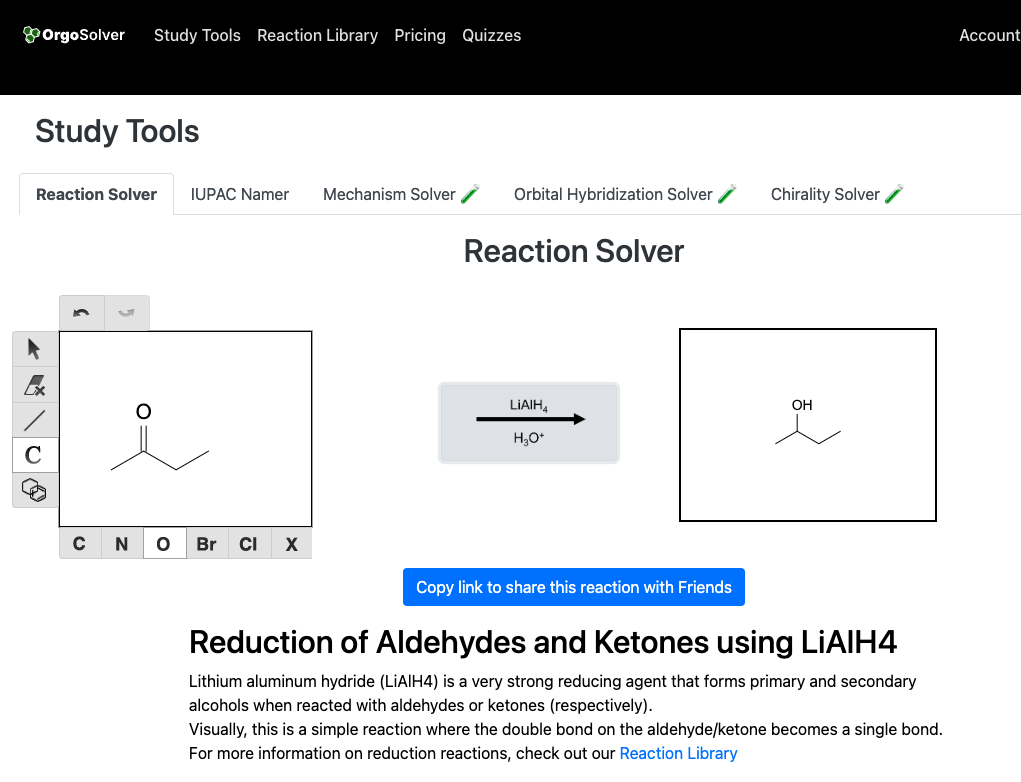Synthesis and reactions of ketones and aldehydes
Carbonyl compounds are a fundamental class of organic compounds containing a carbonyl functional group, which is a carbon atom double-bonded to an oxygen atom. Aldehydes and ketones are two common types of carbonyl compounds that are essential in many chemical reactions and organic synthesis. In this lesson, we will discuss the synthesis and reactions of aldehydes and ketones.
Synthesis of Aldehydes and Ketones:
Aldehydes and ketones have similar methods of synthesis. Aldehydes can be prepared by the oxidation of primary alcohols, while ketones can be prepared by the oxidation of secondary alcohols. In addition, aldehydes and ketones can be prepared by the oxymercuration of alkynes or the reaction of acid chlorides with organometallic reagents.
Oxidation of Alcohol

Oxymercuration of Alkynes

Reactions of Aldehydes and Ketones:
Aldehydes and ketones exhibit various chemical reactions due to the presence of the carbonyl group. One of the most important reactions of aldehydes and ketones is nucleophilic addition reactions. In this reaction, a nucleophile attacks the carbonyl carbon atom, leading to the formation of a new bond and the substitution of the carbonyl oxygen atom with a nucleophile. Another essential reaction of aldehydes and ketones is reduction reactions, where the carbonyl group is reduced to an alcohol by using reducing agents such as sodium borohydride or lithium aluminum hydride (LiAlH4).
Nucleophilic Addition (Grignard)

Reduction of Carbonyls

Summary
Aldehydes and ketones are essential carbonyl compounds that are widely used in organic synthesis. They can be synthesized by various methods, such as oxidation of alcohols, hydration of alkynes, and reactions with acid chlorides. They also exhibit a variety of chemical reactions, including nucleophilic addition and reduction reactions.
Visit our Reaction Solver to draw any molecule, select your reagent, and get an answer!
For a complete list of carbonyl reactions used in Organic Chemistry 1, check out our Reaction Library!
Test Your Knowledge:
How can aldehydes and ketones be synthesized using acid chlorides?
What are some common reducing agents used to reduce carbonyl groups in aldehydes and ketones?